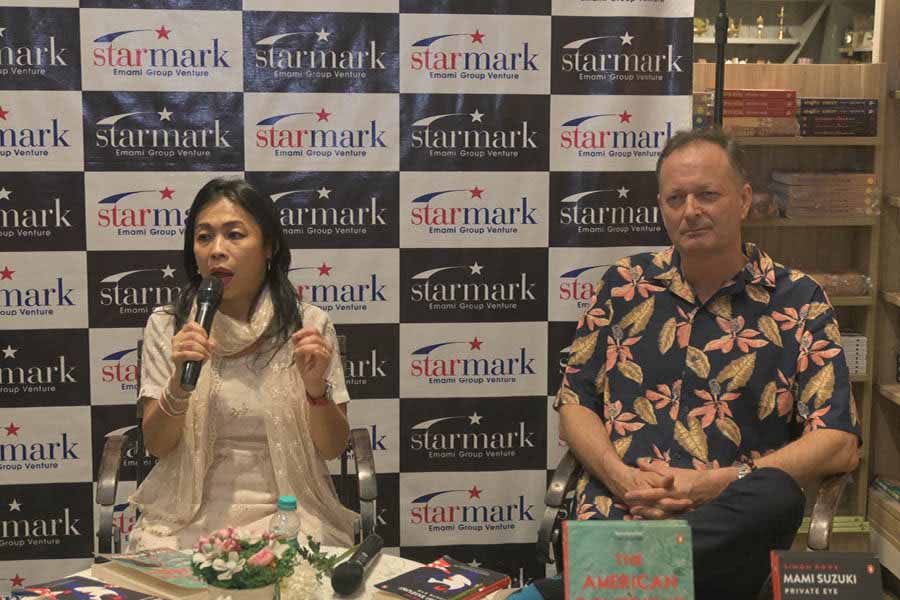Ivy Ngeow, the author of The American Boyfriend, and Simon Rowe, the author of Mami Suzuki: Private Eye, gathered for a discussion with Madhurima Vidyarthi on February 7 at Starmark, South City Mall. The two Asia-based authors have been touring India with Penguin’s Southeast Asia division, and their final stop was Kolkata. The session, hosted in collaboration with the citywide book club, Kolkata Bookworms, explored the characters of the two authors’ books and their experiences while writing them.
“I read to escape,” Ngeow told the audience. “I write because it’s an extension of exploring for me. I want to create my own space, and take my readers into it.” Rowe added: “Setting itself can be a character. My book focuses completely on Japan, where I’ve lived for 27 years. Each part of the book tries to represent different sides of Japan and how it’s a small but compact country.”
‘I love the dark side of human psychology and how people like to escape it’
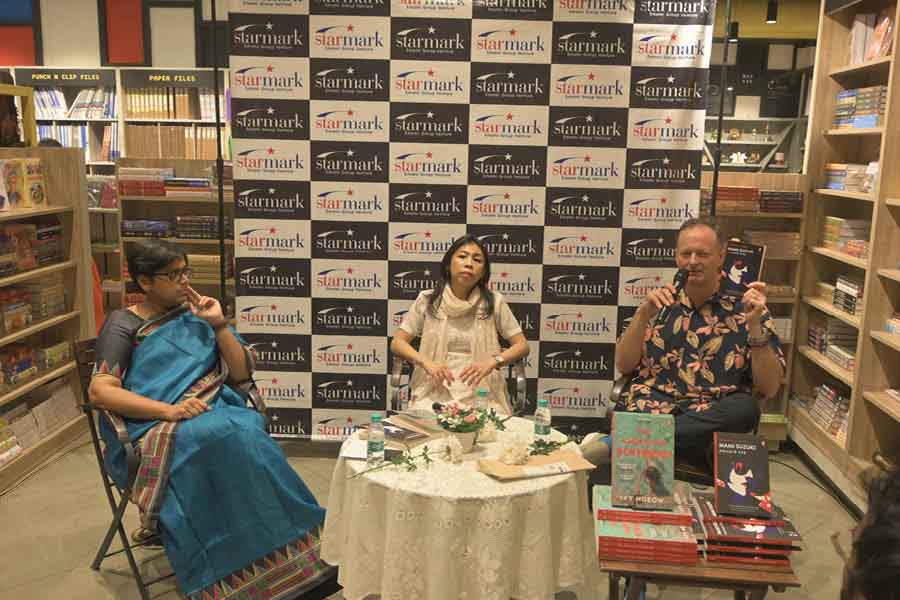
Madhurima Vidyarthi moderated the conversation featuring Ngeow and Rowe.
“I enjoy places that are beautiful but dark and creepy. I really like the gothic genre. Some critics described it as sunny gothic. These are the big tropes, full of what appeals to me. I love the dark side of human psychology and how people like to escape it.” said Ngeow, regarding creating the lead character of her novel, Phoebe.
Vidyarthi rightly pointed out how single mothers take the centrestage in both the novels. While Ngeow or Rowe had no idea about each other’s books when they wrote their latest novels, the former said: “I like tales of triumph over misery. Japan has a lot of single mothers. I like to see them triumph over the challenges.” Rowe, for his part, observed: “I was tired of reading Asian stereotypes, and wanted to write about them living as immigrants in the West. She (Mami Suzuki) is already facing so much trouble, and there’s not much help, unlike in Asia. There are a lot of things that make her wish to escape to America and not be stuck. I wanted to represent this to the readers, especially Western readers.”
The conversation concluded with the two authors reading excerpts from their books, before the audience was invited to ask their questions to the authors.
‘A man following a woman is weird, but a woman following a man is… fantastic!’
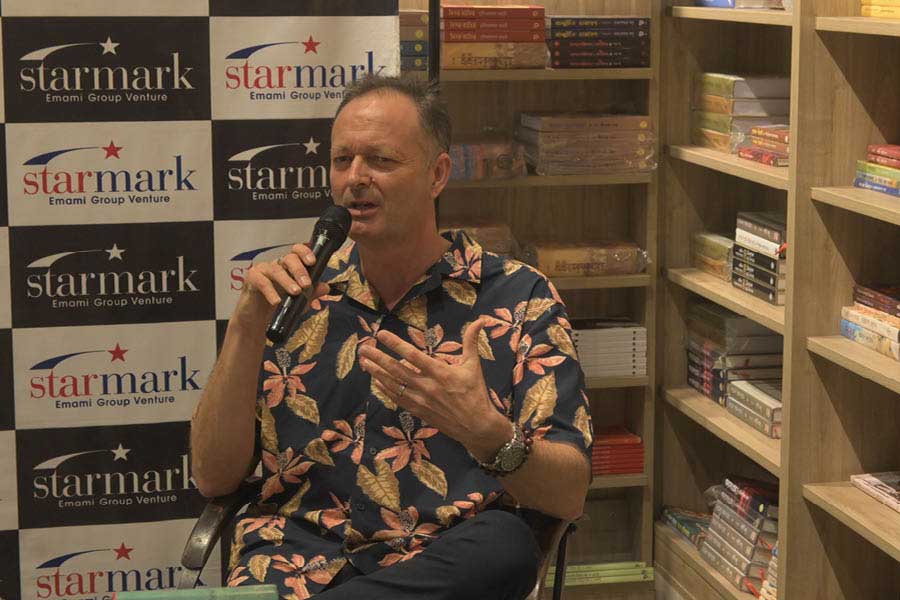
Rowe shared his thoughts about why female detectives match their male counterparts and more.
One of the readers in the audience wanted to know what made Rowe choose a female sleuth, and how it combats the popular culture of male detectives, both in Japan and around the world. “I found a leaflet of a female detective service that specialises in finding cheating husbands. Later, when I went into the professional private investigating space, I wondered why there’s so few women. Women detectives work contractually. But the men there told me that women are good at being invisible… A man following a woman is weird, but a woman following a man is… fantastic!” responded Rowe.
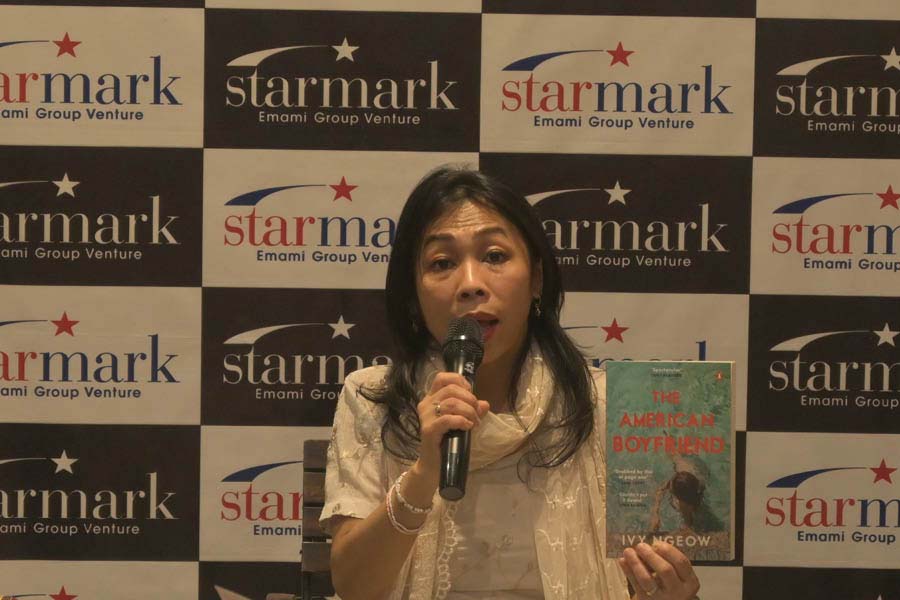
Ngeow broke down the ways in which a writer’s block can be tackled.
Another reader wished to know how to deal with a writer’s block. Ngeow suggested: “It depends on at which point you get stuck. If it’s at zero to five per cent, you have to ask what the book is about. At 50 per cent, it’s harder. It’s a monumental task. Everything new to us is hard and you can’t go fast at it. Practise and keep revisiting it, go at it in small chunks.” Rowe added: “Hemingway said most of his stories happen before they hit the paper. He and many writers think out the story [in their heads] before sitting down to write it. For me, doing something else helps free up my mind. I agree with Ivy, read what you wrote before. Finally, keep your writing really simple.”
“Hosting our first Penguin SEA event in India, particularly in the vibrant city of Kolkata, marks a significant milestone for us, as it reaffirms our belief in the growing readership and enthusiasm for literature from South East Asia. Both books, Ivy Ngeow’s The American Boyfriend and Simon Rowe’s Mami Suzuki: Private Eye have got such a warm reception and engagement, which reflect a genuine interest in the diverse stories and voices emerging from our neighbouring countries. We’re thrilled to be part of this exciting journey and look forward to fostering more literary connections across borders,” said Chaitanya Srivastava, senior executive, publicity and corporate communications, Penguin Random House SEA.
‘Kolkata’s far more colourful, vibrant, and noisier than Japan… I can’t stop admiring Kolkata’s beautiful and unspoiled original architecture’
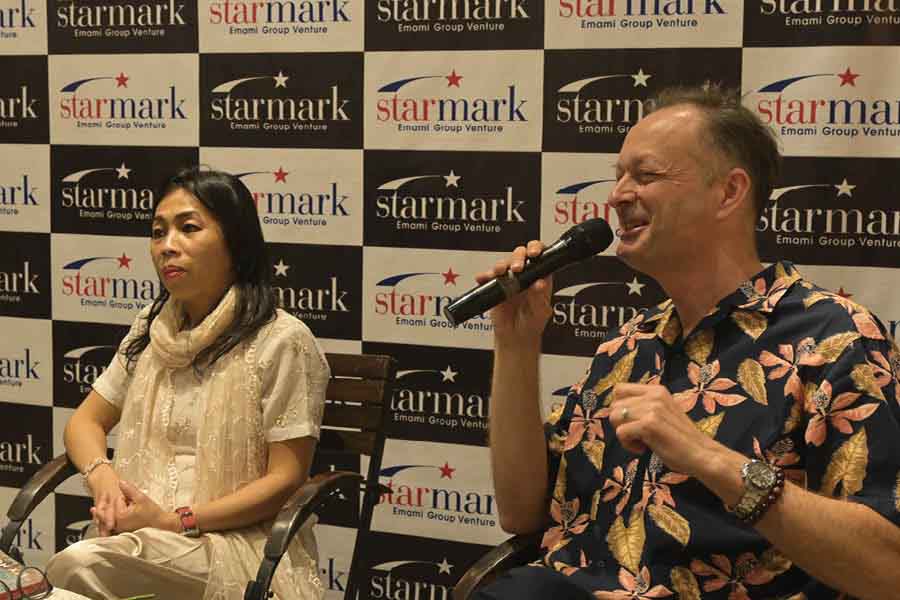
Ngeow and Rowe thoroughly enjoyed their time in Kolkata.
Ngeow and Rowe also spoke to My Kolkata as part of an exclusive chat, providing personal insights into their writing journeys. Edited excerpts from the conversation follow.
My Kolkata: What’s next? What books are you working on?
Ivy Ngeow (hereafter IN): I’m working on an Asian psychological thriller set in London about a wealthy elderly man whose penniless daughter has returned home only to find her role has been taken by an attractive and efficient carer.
Simon Rowe (hereafter SR): I’m writing a feature film screenplay about a young Japanese girl who is addicted to her iPhone. She is sent to spend the summer holidays at her grandmother’s house in the country — where there is no internet!
Is there a particular genre, broadly speaking, that you would like to write about?
IN: I’d love to write literary fiction crossed with family drama and romance such as Taylor Jenkins Reid, Bonnie Garmus or Delia Owens.
SR: I enjoy the challenge of writing in any genre. In fact, I didn’t intend to write a mystery novel at all. Readers of my short story, Pearl City (the tale of a female private investigator in Japan) asked me to write more adventures about Mami Suzuki. The result was the novel.
You must have had a chance to see a bit of Kolkata. What do you think about the city?
IN: The City of Joy is indeed full of joy. The meals I’ve had have been phenomenal and there is nothing like it elsewhere. I love the heartwarming reception I’ve received here. As an architect and designer, I can’t stop admiring Kolkata’s beautiful and unspoiled original architecture. In fact, I spent all day today looking at the buildings, it’s my favourite pastime. Not to mention, I have been treated to the best eateries in town — Peter Cat, Flurys, Roastery, 6 Ballygunge Place, Chowman and Arsalan.
SR: Kolkata’s far more colourful, vibrant, and noisier than Japan. At first, I didn’t know whether to be fascinated or fearful. Now, I just enjoy taking a taxi around the city, watching daily life in all its wonderful facets and forms, and feeling joyful!
If you want to set your next story in a new country, which one would you choose?
IN: I’d love to set my story in a new country each time. So, after London, I’d pick somewhere I know, such as Sydney, Singapore or Hong Kong, but it would be somewhere where I can tap into my Asian roots.
SR: I’d quite like Mami Suzuki to visit India and team up with a local female private eye to solve a case with ties to both countries. I’m taking notes now…
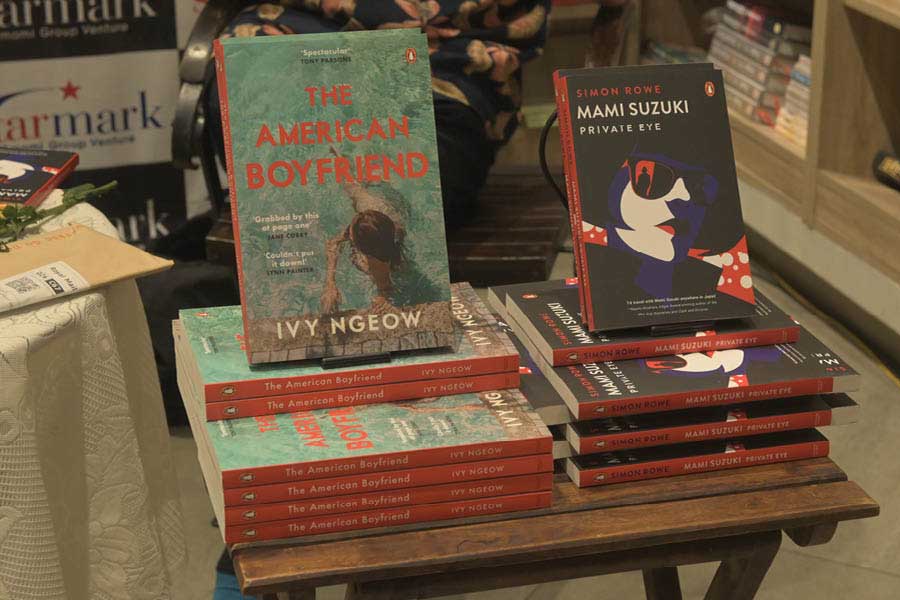
‘The American Boyfriend’ was published last September while ‘Mami Suzuki’ came out last December.
What sort of challenge did you face while writing your last book?
IN: Time is the only challenge I face as my day gets chopped up into family time and day job time and dog time and exercise time. Writing seems selfish and low on the list, but I’m trying to juggle my priorities at this stage in my writing journey.
SR: When the publisher (Penguin) asked me to write a book based on a single sample chapter, synopsis and cover letter that I had sent to them two years ago, I was a little nervous. They gave me only 10 months to write the entire novel. It’s amazing what you can achieve with a deadline from a major publishing house hanging over you!
